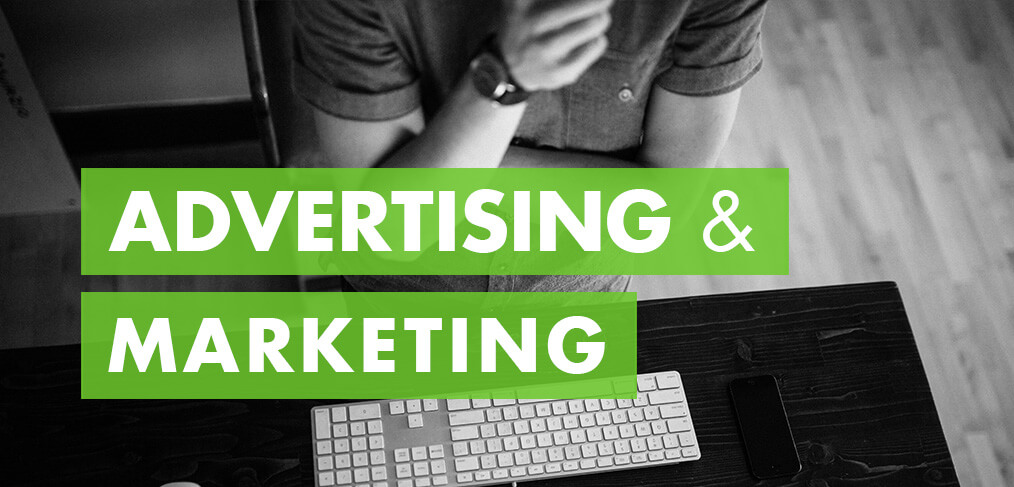In the digital era, Facebook has emerged as a pivotal platform for marketing. With over 2.8 billion active users globally, it offers unparalleled access to a vast audience. This article delves into the multifaceted advantages of using Facebook for marketing, providing insights for businesses seeking to harness its potential.
1. Immense Reach and Diversity
Facebook’s user base is not just massive; it’s incredibly diverse. This diversity spans various demographics, including age, gender, geography, and interests, making it a versatile platform for businesses targeting a wide array of audiences. Whether a company aims at young tech enthusiasts or retirees interested in travel, Facebook likely has a significant segment of their target audience.
2. Advanced Targeting Capabilities
One of Facebook’s most powerful features for marketers is its sophisticated targeting options. Businesses can target users based on demographics, interests, behaviors, and even life events. This level of granularity ensures that marketing efforts are not just broad but also highly targeted, increasing the likelihood of reaching the most receptive audience.
3. Cost-Effectiveness
Compared to traditional marketing channels, Facebook advertising can be significantly more cost-effective, especially for small and medium-sized businesses. With options for setting budget limits and cost-per-click pricing, it provides a flexible approach to advertising that can accommodate various budget sizes. This makes it an attractive option for businesses seeking a high return on investment (ROI).
4. Rich Analytics and Insights
Facebook provides comprehensive analytics tools that help businesses track the performance of their marketing campaigns in real-time. These insights include data on reach, engagement, click-through rates, and conversions, allowing marketers to measure the effectiveness of their strategies and make data-driven decisions.
5. Engagement and Community Building
Facebook excels in fostering engagement and building communities. Brands can create pages and groups to interact directly with their customers, receiving feedback, answering queries, and building a loyal community. This direct interaction not only enhances customer service but also builds brand loyalty.
6. Versatility in Content Format
The platform supports a wide range of content formats, including text, images, videos, and live streams. This versatility allows businesses to craft diverse and dynamic marketing strategies, keeping their content engaging and relevant to their audience.
7. E-commerce Integration
Facebook’s e-commerce features, like Facebook Shops, allow businesses to sell products directly through the platform. This integration provides a seamless shopping experience for customers, potentially boosting sales.
8. Mobile Optimization
With the majority of Facebook users accessing the platform via mobile devices, Facebook’s mobile-optimized interface is a crucial advantage. This ensures that marketing content is effectively delivered to a mobile audience, an essential consideration in a predominantly mobile-first world.
9. Cross-Platform Opportunities
Facebook’s ownership of other platforms like Instagram and WhatsApp allows for cross-platform marketing strategies. Businesses can synchronize their marketing efforts across these platforms, amplifying their reach and impact.
10. Innovative Advertising Features
Facebook continually introduces innovative features like augmented reality (AR) ads, interactive polls, and 360-degree videos. These features provide businesses with creative and cutting-edge ways to engage their audience and stand out in a crowded digital space.
Facebook’s marketing potential is vast and multi-dimensional. Its ability to reach a diverse audience, combined with sophisticated targeting, cost-effectiveness, and versatile content options, makes it an invaluable tool for businesses.
As digital marketing continues to evolve, Facebook remains a key player in shaping how brands connect with their customers. By effectively leveraging Facebook’s features, businesses can not only reach their marketing goals but also build lasting relationships with their audience.
Immense Reach and Diversity of Facebook for Marketing
Expanding on the immense reach and diversity of Facebook, it’s crucial to understand how these aspects can be strategically leveraged in marketing. This section delves deeper into the platform’s extensive reach and the diverse nature of its user base.
Global Reach Like No Other
Facebook’s global user base is its most striking feature. As of my last update in April 2023, it had over 2.8 billion active users worldwide. This means that nearly a third of the global population is on Facebook, presenting an unprecedented opportunity for marketers. It’s not just the sheer number that’s impressive but also the geographic spread. Facebook’s reach extends to virtually every country, offering businesses a global platform to market their products or services.
Demographic Diversity
Facebook’s user base is incredibly diverse, covering all age groups, genders, and socio-economic backgrounds. While initially popular among younger audiences, its appeal has broadened over time, attracting middle-aged and older users as well. This diversity allows marketers to target niche demographics or broad, cross-sectional audiences depending on their strategy.
Age Groups: From teenagers to seniors, different age groups use Facebook for various reasons, from staying in touch with friends and family to following news and entertainment. Marketers can tailor their content to resonate with specific age groups, ensuring higher engagement rates.
Gender and Interests: Facebook’s data on gender and user interests provides a goldmine for targeted marketing. Whether your product is gender-specific or appeals to particular interests like fitness, gaming, or cooking, Facebook’s targeting capabilities allow for precision marketing.
Geographical Targeting: Local businesses can target users in specific regions, cities, or even neighborhoods, while global brands can launch wide-reaching campaigns across multiple countries. This geographical targeting is particularly beneficial for location-based marketing strategies.
Cultural and Behavioral Insights
Facebook collects vast amounts of data on user behavior, interests, and engagement. This data includes what users like, share, and the type of content they interact with most. By analyzing this data, marketers can gain insights into cultural trends, consumer behavior, and emerging patterns. This information is invaluable for crafting campaigns that resonate with specific audience segments.
Leveraging Diversity for Marketing Success
Customized Content: Understanding the diverse demographics on Facebook allows businesses to create customized content that appeals to different segments of their audience. For instance, a brand could create different ad sets for different age groups, each with tailored messaging and imagery.
Testing and Optimization: The diverse user base also allows for A/B testing of marketing strategies. Businesses can test different ad formats, messaging, and targeting to see what works best with their audience, continually optimizing for better performance.
Cultural Relevance: Brands can craft culturally relevant marketing campaigns that resonate with specific demographic segments. This relevance can significantly increase user engagement and brand affinity.
Seasonal and Event-based Targeting: Facebook’s diversity also allows for effective seasonal and event-based marketing. For instance, targeting users based on holidays, cultural events, or even sports events can lead to highly successful campaigns.
The immense reach and diversity of Facebook’s user base make it an unparalleled platform for digital marketing. By understanding and effectively leveraging these aspects, businesses can significantly enhance their marketing strategies, ensuring they reach the right audience with the right message.
This strategic approach not only helps in maximizing ROI but also in building a more profound and meaningful connection with diverse audience groups.
Advanced Targeting Capabilities of Facebook for Marketing
The advanced targeting capabilities of Facebook are what truly set it apart in the digital marketing landscape. This section provides a deeper dive into how these features enable businesses to precisely reach their desired audience, ensuring that their marketing efforts are both effective and efficient.
Granular Targeting Options
Facebook’s targeting capabilities are incredibly detailed, allowing businesses to reach specific groups of people based on a multitude of criteria. Here are some of the key targeting options:
Demographic Targeting: This includes basic parameters like age, gender, education, relationship status, job title, and more. For instance, a bridal wear brand can target women aged 20-40 who are engaged.
Interest-Based Targeting: Facebook tracks user activities, likes, and interests, enabling businesses to target users based on their hobbies, favorite entertainment, news topics, and more. A sports equipment company, for example, can target individuals interested in fitness and outdoor activities.
Behavioral Targeting: This involves targeting users based on their purchasing behavior, device usage, travel patterns, and other actions. Businesses can reach users who have shown a propensity to shop online, travel frequently, or use certain types of technology.
Location-Based Targeting: This allows businesses to target users in specific locations, from broad regions to specific addresses. This is especially useful for local businesses or events.
Custom Audiences: Businesses can upload lists of contacts (like email lists) to target existing customers or leads. This is particularly effective for retargeting campaigns or nurturing leads.
Lookalike Audiences: Facebook can use existing customer data to find new users who share similar characteristics. This expands reach while maintaining relevancy.
Dynamic Ads and Retargeting
Facebook’s dynamic ads automatically show the right products to people who have expressed interest on your website, in your app, or elsewhere on the Internet. Combined with retargeting, businesses can remind customers of products they viewed but didn’t purchase, effectively bringing back lost sales opportunities.
Pixel Tracking for Precise Measurement
The Facebook Pixel is a powerful tool for tracking user behavior on a website. It helps in understanding how people interact with a website after viewing a Facebook ad. This data is crucial for optimizing ad campaigns, measuring their effectiveness, and retargeting users.
Optimizing for Different Objectives
Facebook’s ad platform allows businesses to optimize their campaigns based on different objectives like brand awareness, website traffic, engagement, app installs, video views, lead generation, and sales. This ensures that the ad delivery is aligned with the specific goals of the campaign.
A/B Testing for Improved Performance
Facebook facilitates A/B testing (or split testing) where businesses can experiment with different versions of their ads to see which performs better. This testing can cover aspects like ad formats, images, headlines, call-to-action buttons, and targeting criteria.
Facebook’s advanced targeting capabilities offer a level of precision and customization that is unparalleled in the realm of digital advertising. By leveraging these sophisticated tools, businesses can create highly tailored and effective marketing campaigns that resonate with their target audience.
This not only maximizes the impact of marketing spend but also enhances the overall user experience by presenting relevant and engaging content to the audience. As the digital landscape evolves, mastering these targeting tools will be crucial for businesses looking to stay competitive and connect meaningfully with their customers.










